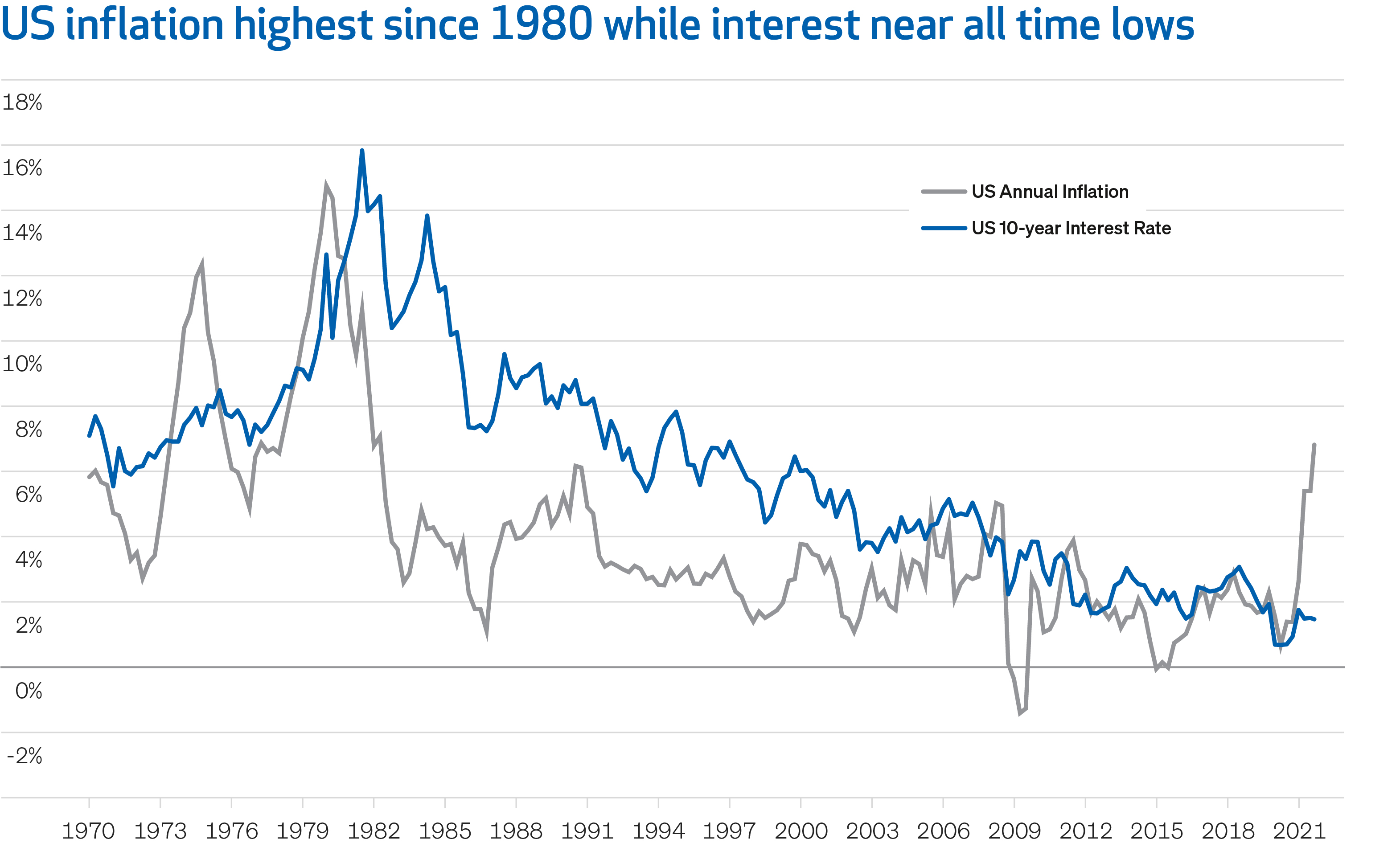Investing in a high inflation environment
It was back in August of last year that I first referenced the growing inflation risk in New Zealand and labelled it the 'silent thief'. It is now official; the silent thief has arrived. Stats NZ 1 have confirmed that the Consumer Price Index (CPI) increased 5.9 percent for the 12-month period ended December 2021. This is the highest rate experienced over the last 30 years and anecdotal evidence suggests that many supply chain pressures are yet to peak. Offshore, the situation is similar with the United States CPI climbing to 7% in 2021. Like New Zealand, this is also a multi-decade high; in fact, it's the highest rate since June 1982. And perhaps more telling is that the United States central bank, the Federal Reserve, is no longer referring to inflation as 'transitory' but acknowledging the potential for it to be 'persistent'. OK, so no big surprise here; anyone who has been supermarket shopping over the last six months is well aware of this. At curr...




